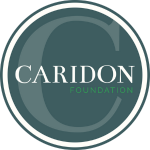Sherrelle Collman, Managing Director of Caridon Foundation, has been elected as a Board Trustee for the National Appropriate Adult Network (NAAN), a registered charity aiming to ensure the rights and welfare of the most vulnerable people in our society by developing effective appropriate adults.
NAAN is governed by a board of voluntary trustees. The board is made up of people elected by its membership from within its membership; and those coopoted by the board to broaden its skills and experience.
As the Managing Director of a successful organisation already helping vulnerable adults, and in particular those displaying challenges such as substance misuse, debt, unemployment, and poor mental health, as well as experience of the criminal justice system, Sherrelle is passionate about taking on this position.
She comments: “I left school at 14 with no GCSEs and my teachers said that I would not amount to anything. Along the way I have faced some major setbacks but these have been the making of me. However, I could not have reviewed the direction of my life, re-set and started again without the influence and support of some inspiring individuals. I have seen many people in the same position as me, broken by the system and who fail to make it.
I believe gaining a more in-depth understanding of the criminal justice system from an external perspective will enable me to more effectively support the vulnerable individuals I work with on a daily basis and give them the support I had when I needed it most.
I have already spent much of my career helping others suffering multiple disadvantages from some of the most excluded communities. I dedicated my personal and professional time to this because I can relate to it and I want change for others, as I had for myself.”
The vision of the National Appropriate Adult Network is that every child and vulnerable adult detained or interviewed by police has their rights and welfare safeguarded effectively by an appropriate adult.
The beneficiaries of the charity are children and young people (aged 10 to 17) who are arrested and/or interviewed by police, as well as adults who are mentally vulnerable (including but not exclusively; mental health, learning disabilities and difficulties, autistic spectrum disorders, severe dyslexia).

